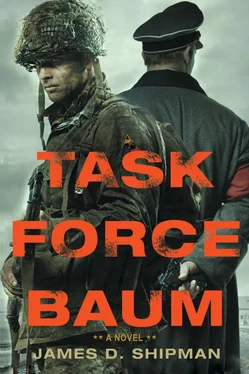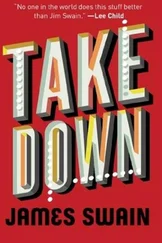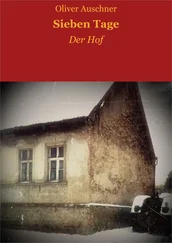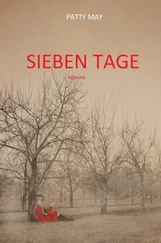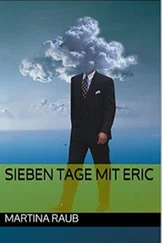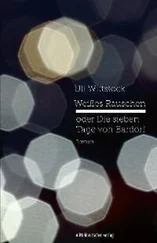The private pushed the men down to their knees. Their hands were still in the air. The other two Germans were up with him now, rifles pointed at the Americans.
“All over now, Hauptmann ,” said one of them. “You are brave. Or crazy.”
Koehl didn’t answer. He stared into the faces of these Americans. They were full of apprehension. They didn’t look like the killers who had taken away his future. He didn’t want to see them. He wanted to take their lives as they’d taken away his. He stepped forward to stand in front of the first one. He raised his pistol and aimed it at the soldier’s head. He wanted his vengeance.
“ Hauptmann , no!” shouted one of his men. “They’ve surrendered. You can’t do it.”
“Quiet, Private!” he screamed. “Did they show mercy to my sister? To Sergeant Schmidt? No. They killed them without remorse.”
“I don’t know what you’re talking about, but you can’t shoot them in cold blood. Their war is over. Look at them.”
The words beat at the flames of his fury. He didn’t want to hear them, but he couldn’t force the truth away. He looked at the man kneeling before him; his eyes were closed, he was shaking. The other Americans were watching in horror. Behind them, the GI he’d shot was rocking back and forth, screaming in his death throes. The other wounded soldier was lying back, clutching his injury.
He spit on the ground, his anger returning. Was he to be denied this last satisfaction? He had lost everything. Germany had lost everything. He wanted one last vengeance for his family, for his nation. He raised the pistol again.
A hand gripped the barrel, pulling it upward. He whipped around, staring into the face of one of the privates. The one with the machine gun. He pulled and twisted, trying to free his grasp, but the soldier would not let go. He looked at Koehl with a grim sadness and shook his head. “Not like this, Hauptmann . Don’t end the war like this.”
Koehl struggled for a few more moments and then stopped. He let go of the pistol and turned, walking briskly away. He took a few steps and then collapsed, burying his face in the dirt, his hands ripping into the earth until they were cut and bleeding. He screamed, hot tears burning his eyes. He didn’t want to let go. They’d taken everything from him. There was nothing left for his future. He lay that way for a long time, sobbing. Nobody disturbed him.
Finally, he felt he’d had enough. The private was right. He couldn’t kill these men now. They were prisoners. Their war was over, and so was his.
He rose, stepping back toward his men. The Americans were standing now, and as he moved toward them, they huddled together, afraid for their lives. He stared at them for a few moments, then turned and walked back down the hill and up the higher prominence toward his Ferdinand.
He felt nothing. A hollow emptiness smothered his soul. He was a shell, a shade, a specter. Like Germany. A nothing with only darkness ahead.
Hill 427
March 28, 1945, 0700 hours
Hall turned the jeep’s ignition, and the vehicle coughed and sputtered in the crisp morning air, fighting to come alive. Around them, he could hear the tanks and half-tracks battling to life as the task force sprang forward on their desperate dart to freedom. The next hour would tell whether they had made it. Hall was anxious to complete this disastrous raid and to distance himself from Stiller. The major sat glumly in the seat next to him. In this last hour before dawn, he’d refused to look at or speak to the lieutenant. No matter, Stiller was trapped, and the dolt knew it. He would cooperate when the time came, whether he liked it or not. Like any dog, he’d sacrifice his own desires to save his master.
He felt the explosions before he saw them. A pressurized wave of stifling air washed over him from behind. Even as he struggled to recover from the shock of the sensation, a tank in front of Hall exploded in a cloud of fire, then another. He turned toward Stiller, trying to speak, but the words would not come.
Another moment passed, or was it more? The sights and sounds around him overwhelmed his senses, rendering him unable to act or even think. A hand landed on his arm, pushing away from him. He fought to move the grip, but the fingers pressed in on his upper arm with an immovable force. He turned his head and saw Stiller, shoving him out of the jeep. He blinked, trying to understand what this meant. Then it occurred to him: the major was trying to help him. They had to move, get away from the exposed vehicle before it was too late.
He turned away from Stiller, dragging his feet out of the car and willing them to the ground. He started to rise, but he was shoved with massive force up and away, and he flew through the air, landing hard and tumbling down a few yards. His whole body felt scorched and battered. His ears rang, and his mouth tasted like bitter metal. He rolled over, opening his eyes to look back at the jeep. It was gone. Torn completely apart by a shell. He looked down at his arms and legs. They were a bloody mess, and he felt throbbing pain burning through him. He examined his wounds more closely and realized with relief that they were superficial, caused by dozens of glass and metal fragments tearing along the surface of his skin.
He tried to rise even as the artillery rained down on the task force. He was dizzy and unable to stand. He turned away from the thunderous, burning mess and crawled, moving his hands and knees over the frozen earth, trying to shamble away from the ambush before he was struck and killed by the shrapnel that tore this way and that all around him. In every direction, he could see the soldiers of the task force and the POWs running toward the woods sloping down the hill. Some had weapons, but very few. There was no organization, nobody appeared in charge. Everyone was running for their life.
He felt hard fingers on his back, and his shirt was jerked back. He turned and saw Stiller, who mouthed something at him. He couldn’t understand the words or hear them over the screaming clamor in his ears. The major frowned down at him, apparently grasping that he could not understand. He reached down with his other hand and pulled Hall up to a standing position. The major tucked his arms around the lieutenant’s back and began walking him out of the clearing.
Each step was an agonizing crucible. They moved slowly, Stiller pulling him, his hands an iron cuff on his back, holding him upright and dragging him away from the fire. Step by step, they moved closer to the trees. Hall had no idea where they would go, or even why, but he wanted desperately to get away from the burning tanks. The eye of the task force held only oblivion now.
They reached the trees. The hill sloped sharply down. The going was even more difficult now, as Stiller was forced to brace them with each step downward, gravity threatening to tumble them freely down the decline and into the waiting arms of God knew what.
Hall saw bullets chirping off the dirt. He looked down the hill but could see nothing. Perhaps they were simply spare rounds from the fight at the top of the hill, but he knew it was likely the Germans had them surrounded. Perhaps they should just sit down and wait for the end. He wanted to say this to Stiller, but he couldn’t make the words come out, and the major was not looking in his direction, instead concentrating on moving them farther and farther away from the hilltop.
In the distance, they could see the flash of fire and gray forms moving up the hill. They continued on, moving now this way and now that behind the trees, trying to minimize their target. A small group of infantry caught up to them, and they moved on together. Hall supposed they were trying to fight their way out, but he didn’t know the purpose, at least for him. He was too badly hurt to make it very far. Then again, if they could make it through the Germans and hide for a day or two, he might regain his strength.
Читать дальше
